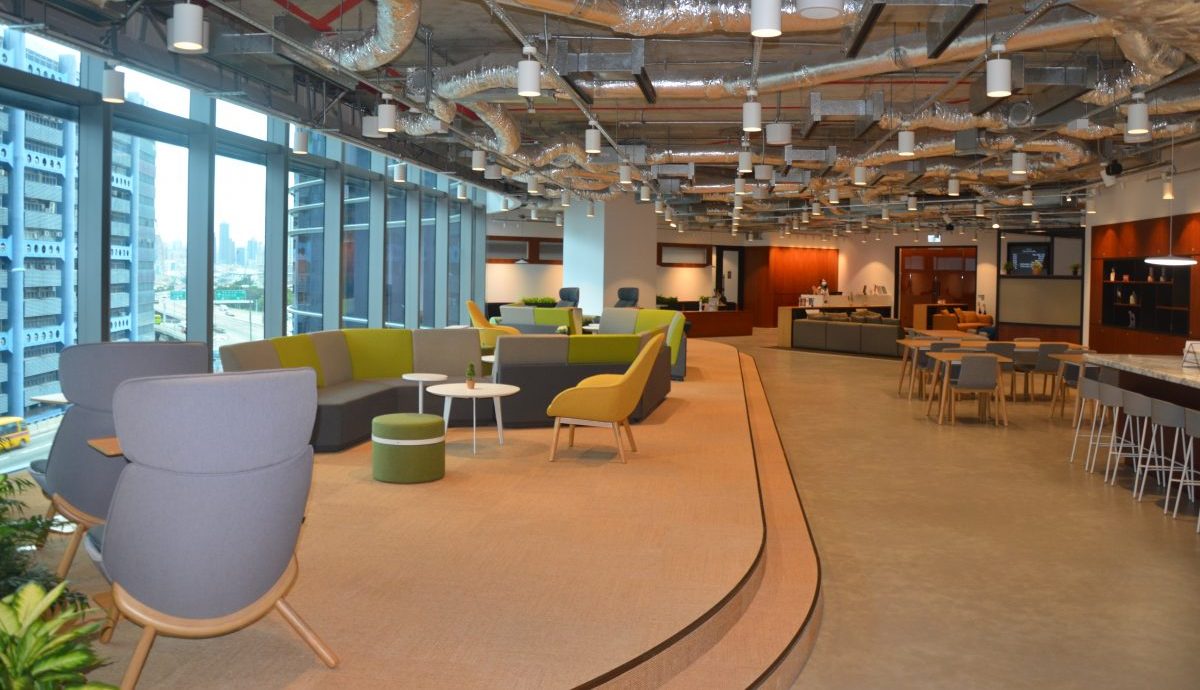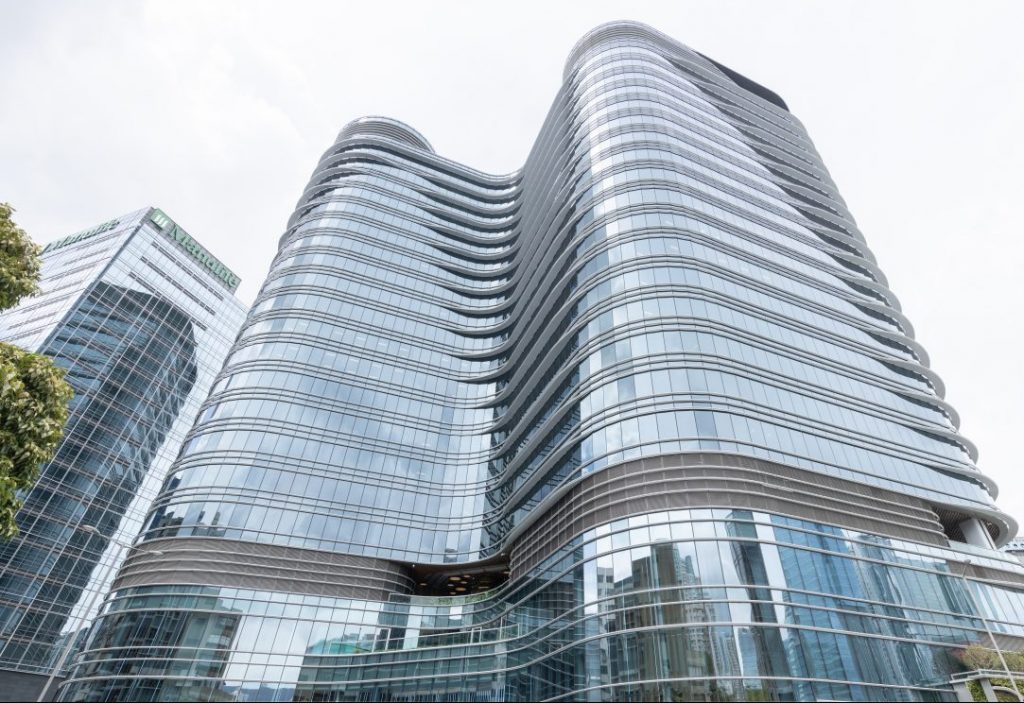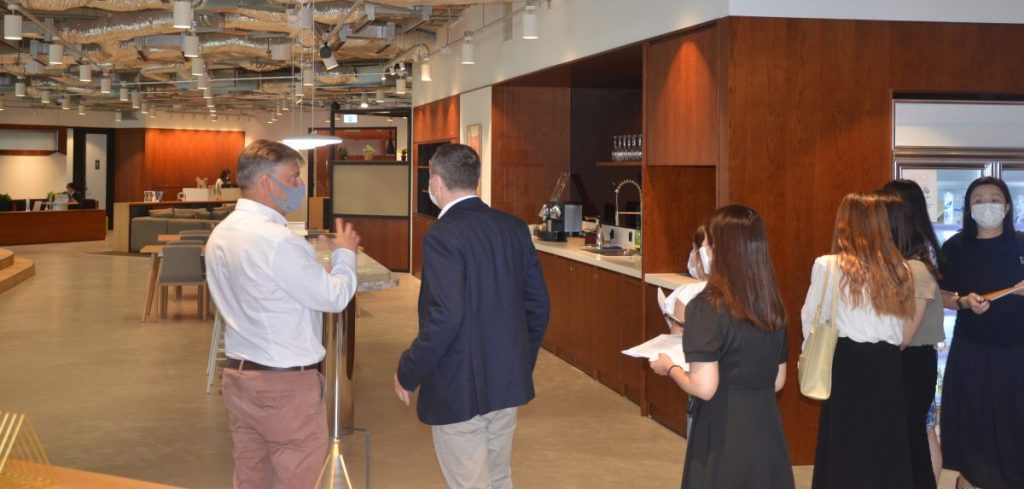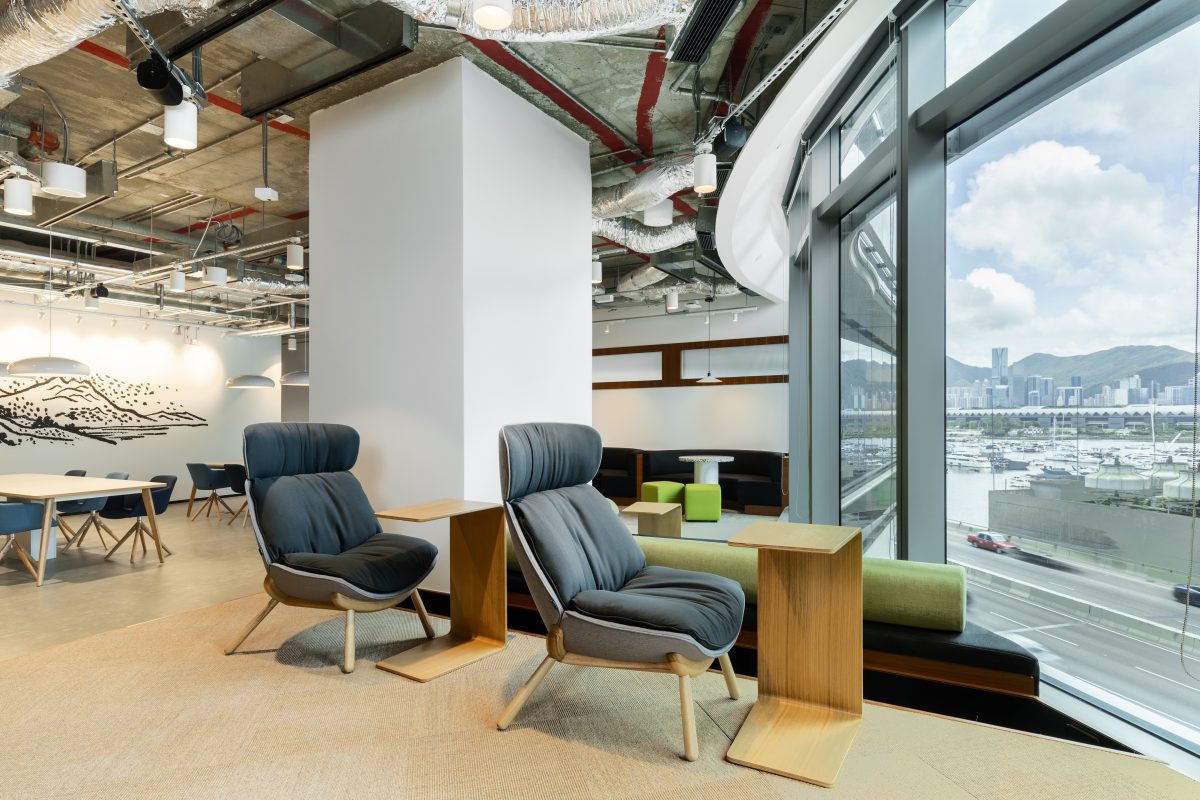
From car workshops to contemporary workspaces, Kwun Tong's transformation
We sipped our lattes in Pret and watched the eclectic mix of nationalities funnelling through the spacious lobby of The Quayside, which houses one of JP Morgan's three main Hong Kong offices. Anyone could guess we were in the heart of Hong Kong's CBD, but what they might not expect, is that we were sat in the middle of Kwun Tong—Hong Kong's newest CBD in Kowloon East.
JP Morgan, Manulife, AIA and Standard Chartered are just a few of the big players who have already decentralised their office spaces in the SAR, as they extend their footprints in the up-and-coming Kwun Tong. Once home to factories and primarily industrial buildings and car repair/detailing workshops, Kwun Tong has received a massive facelift over the past decade; assisted by the Urban Renewal Authority's efforts, the district is now home to luxury property developers, new shopping arcades, A-grade office skyscrapers and a plethora of trendy bars, cafes and restaurants to serve all the new talent that now work in the area.
Kowloon East leads decentralisation wave
There is a growing demand for decentralised, flexible workspaces to reduce the ridiculous rents that prevail in traditional CBDs, help reduce staff commute times and provide more extensive, flexible workspaces. IWG, the global provider of flexible workspace under brands including Spaces and Regus, is one such company that has realised the potential in the heart of Kwun Tong, and HR Magazine was invited to explore its third Signature location there at The Quayside, Kowloon East.
A former WeWork site, Signature at the Quayside, joins existing Signature properties in Hysan Place in Causeway Bay and The Gateway in Tsim Sha Tsui, which have seen surging occupancy. The workplace started operating in June 2021 and offers over 50,000 square feet of flexible office space with over 650 workstations and private offices. Spaces are designed from one-person to 150-people offices overlooking the Kai Tak typhoon shelter and the harbour. Amid Kowloon East's transformation into Hong Kong's second CBD, it is also a pilot area for the Government's efforts to develop Smart City initiatives.
The Government’s Energizing Kowloon East Office announced that a total of 5.74 million square feet of floor space would be developed in the district comprising six new sites. Areas for commercial use will increase by around 7% from the initial development plan proposed back in 2016. This will see six new commercial buildings being developed over two sites along with ancillary retail, catering and entertainment facilities.
According to the report Reshaping the Hong Kong Office Market, released by CBRE, the recent wave of decentralisation has transformed Kowloon East and Hong Kong East from back-office districts to headquarters destinations. As a result, Kowloon East will continue to see a steady increase in the number of high-specification Grade A office buildings in the coming years—underlining its potential to become the city's largest office submarket. And decentralised office expansion is not just limited to Kowloon East; Paul MacAndrew, Country Manager, IWG Hong Kong, explained, "Due to high demand, Signature at The Gateway has expanded this month with an entire extra floor added, accommodating a newly refurbished business lounge and a number of private offices. The three-storey workspace is the largest of the Signature centres in Hong Kong."
The Signature at The Quayside is currently operating under a recently announced joint venture (JV) with Hysan Development Company Limited (Hysan), which has acquired and is operating IWG's 32 existing locations in Hong Kong and the Greater Bay Area (GBA). MacAndrew noted, "In the wake of the pandemic, we are seeing record levels of demand as companies embrace hybrid work and rethink their real estate strategy. Partnering with leading local developer Hysan, with whom we have built a strong relationship over many years, will enable us to scale up more rapidly to meet this demand across the GBA."
With the Government's plan to energise Kowloon East, billions of dollars are being invested in infrastructure to create a neighbourhood full of vibrancy with a convenient and accessible network, making it desirable for business activities. Kowloon East is being transformed into Hong Kong's second Core Business District and the pilot area for developing a smart city. Signature at Quayside provides first-class flexible work facilities for a diverse group of entrepreneurs, tech professionals, freelancers and remote workers to gather and inspire innovation and creativity.
Hybrid workspaces—talent magnet
The pandemic resulted in the biggest remote working experiment in history; the significant move to hybrid working has created unprecedented demand for IWG's flexible work products. This fundamental shift in the way people work has proven to be a favourable tailwind for IWG over the medium to longer term. Seeing increasing interest levels from enterprises wishing to transform their working practices, IWG has already added two million new customers to its network this year. In Q3 2021, global demand was up approximately 15% when comparing pre-and-post pandemic enquiry levels in June 2019 with June 2021.
Smart businesses are seizing the shift to hybrid working to create competitive advantages by cutting costs, boosting productivity and—more importantly—attracting and retaining top talent. Recent research from IWG in the UK demonstrates the popularity of hybrid working with the vast majority of office workers, 72%, choosing the long-term ability to work flexibly over a 10% pay rise and a return to the office full-time. These statistics reveal the dramatic and permanent shift the pandemic has caused in employee attitudes towards the workplace, and that two-thirds of workers would not apply for a new job unless it offered hybrid working.
"Up until now, organisations have been taking a gradual step towards hybrid working, but now we see companies of all sizes accelerate this approach as a result of the pandemic."
Mark Dixon, Founder and CEO, IWG, echoed this, "Up until now, organisations have been taking a gradual step towards hybrid working, but now we see companies of all sizes accelerate this approach as a result of the pandemic. Our partnership with Standard Chartered is a prime example of a visionary company with a strong footprint in Asia, leading the way by taking a radically employee-centric approach, empowering their teams to work where is most convenient and productive. Undoubtedly, this trend will only accelerate further and working in partnership with landlord partners; we will continue to open centres like Signature at The Quayside both in Hong Kong and globally."
According to the Robert Half Salary Guide 2021, 80% of Hong Kong employees would prefer at least a day of remote working after the pandemic. MacAndrew added, “Hybrid work models which combine working from home, at nearby offices and occasionally at a corporate HQ, have disrupted our perception of how a workspace should look like. We are now receiving 30% more enquiries for our services than in the same period last year, pre-pandemic. It is not only companies but also landlords that are actively re-examining their development strategies and adding flexible workspace to their portfolios. With over 30 years’ experience and a proven track record, partnering with the market leader both in Hong Kong and globally is very attractive to landlords who are looking to implement flexible workspace solutions into their buildings.”
"The Pandemic ... has accelerated the structural shift towards flexible use of office space; companies and even landlords are having to radically rethink their real estate strategy."
Hong Kong remains vital gateway to Asia
Paul MacAndrew, Country Manager, IWG—Hong Kong, said, "We are very excited to broaden our local footprint with the launch of our third Signature location and the extension of the existing site, to meet rapidly growing demand in this vibrant gateway to Asia ... Hong Kong is a key city for IWG's growth and strategic development. The pandemic resulted in the biggest remote working experiment in history, bringing radical change in employee behaviour and mindsets, which will have a long-lasting and profound impact on how we work in the years ahead. It has accelerated the structural shift towards flexible use of office space; companies and even landlords are having to radically rethink their real estate strategy."
…Now, where's that latte?






